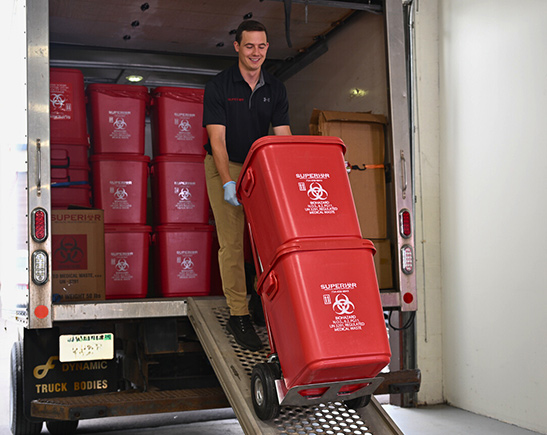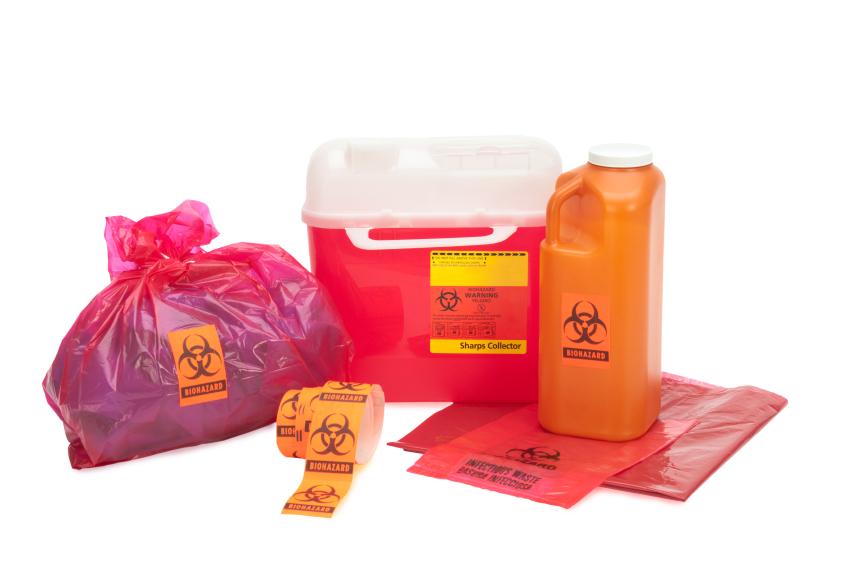Medical Waste Removal Quality: Your Trusted Partner in Safe Biohazard Disposal
Medical Waste Removal Quality: Your Trusted Partner in Safe Biohazard Disposal
Blog Article
The Value of Correct Garbage Disposal Practices
The administration of waste is a critical element of ecological stewardship that typically goes undetected in our lives. Appropriate waste disposal methods are not just a matter of ease yet are necessary for guarding our ecological communities and public wellness. From the consequences of improper garbage disposal on our atmosphere to the lasting ramifications for future generations, the importance of taking on sustainable waste administration practices can not be overstated. By discovering the environmental influence of reckless waste disposal, the advantages of reusing campaigns, and the relevance of neighborhood engagement in waste reduction initiatives, a deeper understanding of why appropriate garbage disposal methods are crucial arises.
Ecological Effect of Improper Disposal
Inappropriate disposal of waste poses a considerable danger to the setting as a result of its detrimental effects on communities and human health and wellness. When waste is not appropriately taken care of, it can lead to pollution of the air, water, and dirt, causing damage to numerous plant and animal species. click here. Chemicals and toxic substances from poorly disposed waste can permeate right into the ground, infecting groundwater sources and affecting the health of both wildlife and humans
Additionally, the accumulation of waste in garbage dumps generates greenhouse gases like methane, adding to environment change and worldwide warming. Incorrect disposal methods likewise lead to littering, which not only breaks down the visual value of the atmosphere but can also harm wild animals via intake or complication.
To alleviate these ecological effects, it is critical for people and areas to embrace appropriate waste disposal techniques such as reusing, composting, and accountable contaminated materials disposal. By taking these steps, we can help protect communities, preserve natural resources, and safeguard human health and wellness for future and present generations.
Benefits of Recycling Programs
On a regular basis participating in recycling programs uses numerous benefits for both the environment and culture as a whole. This preservation of sources not just helps in keeping ecological balance yet also adds to sustainable advancement.
In addition, recycling plays a crucial function in lowering energy usage and greenhouse gas exhausts. The manufacturing of goods from recycled materials usually needs much less energy contrasted to manufacturing from virgin sources - medical waste removal. Because of this, the carbon impact connected with the manufacturing procedure is considerably reduced, aiding in the fight against environment change
Furthermore, reusing programs create job chances in the reusing industry, promoting financial development and social welfare. By encouraging the recycling and reuse of materials, these programs support a round economy that reduces waste generation and makes the most of source performance, eventually bring about a cleaner, greener future for generations to come.
Hazardous Waste Administration Guidelines
Implementing efficient harmful waste monitoring standards is critical for minimizing ecological and wellness threats connected with the inappropriate disposal of hazardous products - click here. Correct handling, therapy, and disposal of contaminated materials are essential to avoid contamination of soil, water sources, and air
One key guideline is proper labeling of contaminated materials containers to make sure secure handling and transport. Furthermore, centers have to comply with strict storage space requirements to stop leakages, spills, or mishaps that could endanger human wellness and the setting. Normal training programs for workers on dangerous waste management practices are additionally crucial to make certain conformity with regulations and promote a culture of safety.
In addition, dangerous waste should be segregated based upon its residential or commercial properties to avoid chemical responses that might result in dangerous scenarios. Carrying out an extensive waste tracking system can help check the activity of unsafe products from generation to disposal, making certain openness and liability. By adhering to these standards diligently, industries and companies can add to a much safer and cleaner atmosphere for future and existing generations.
Area Participation in Waste Reduction
To effectively address the ecological and health and wellness threats related to contaminated materials administration, engaging the community in waste decrease initiatives is extremely important. Area involvement plays an essential function in advertising sustainable waste administration techniques and fostering a culture of ecological responsibility. By informing homeowners about correct waste segregation, recycling, and composting strategies, areas can considerably minimize the quantity of waste sent to garbage dumps, consequently minimizing environmental contamination and preserving natural deposits.
Neighborhood engagement in waste reduction programs likewise aids in raising awareness regarding the value of waste reduction and encourages individuals to embrace eco-friendly practices in their everyday lives - medical waste removal. Collective efforts in between neighborhood authorities, waste monitoring firms, and community members can cause the execution of efficient waste decrease approaches customized to the details demands of each area or community
Furthermore, community engagement fosters a feeling of possession and liability amongst locals, equipping them to take proactive actions in the direction of minimizing waste generation and advertising a cleaner, healthier atmosphere for current and future generations. By collaborating in the direction of usual waste reduction goals, neighborhoods can make a considerable effect on minimizing the adverse results of inappropriate garbage disposal techniques.

Future of Sustainable Waste Practices
The development of lasting waste techniques is vital for progressing environmental stewardship and source preservation in the coming years. As the global populace proceeds to grow, so does the quantity of waste created (medical waste removal service). Traditional waste disposal approaches, such as landfilling and incineration, are no longer sustainable in the long-term because of their substantial ecological impacts. Moving on, the future of lasting waste practices hinges on accepting a round economic climate technique, where sources are recycled, recycled, or repurposed to minimize waste generation.
Technical innovations play a vital duty in forming the future of sustainable waste methods. Advanced waste sorting and reusing innovations can aid enhance the efficiency of waste administration procedures, enabling for the healing of beneficial resources from waste streams. Furthermore, the fostering of biodegradable products and composting techniques can aid minimize the quantity of organic waste winding up in garbage dumps, thereby reducing greenhouse gas discharges.
Furthermore, advertising consumer understanding and education and learning on correct waste partition and disposal practices is vital for driving behavioral change towards sustainability. By fostering a society of waste decrease, reuse, and recycling, neighborhoods can collectively add to a cleaner and much healthier environment for future generations.

Conclusion
Finally, correct garbage disposal methods are click here important for minimizing environmental influence and promoting sustainability. By carrying out reusing programs, managing contaminated materials effectively, and encouraging neighborhood participation in waste reduction efforts, we can work in the direction of a cleaner and much healthier environment. It is very important for people, businesses, and governments to focus on sustainable waste methods for the future health of our planet.

From the repercussions of incorrect waste disposal on our atmosphere to the lasting effects for future generations, the relevance of taking on lasting waste management practices can not be overstated. By discovering the ecological effect of reckless waste disposal, the benefits of recycling initiatives, and the importance of area involvement in waste decrease efforts, a much deeper understanding of why proper waste disposal practices are crucial arises.
By informing locals about correct waste partition, recycling, and composting strategies, neighborhoods can substantially decrease the quantity of waste sent to landfills, therefore lessening environmental air pollution and saving natural sources. (click here)
Moving forward, the future of sustainable waste methods exists in welcoming a round economy method, where resources are reused, recycled, or repurposed to reduce waste generation.
Advanced waste sorting and recycling innovations can help improve the efficiency of waste management processes, permitting for the recuperation of beneficial sources from waste streams.
Report this page